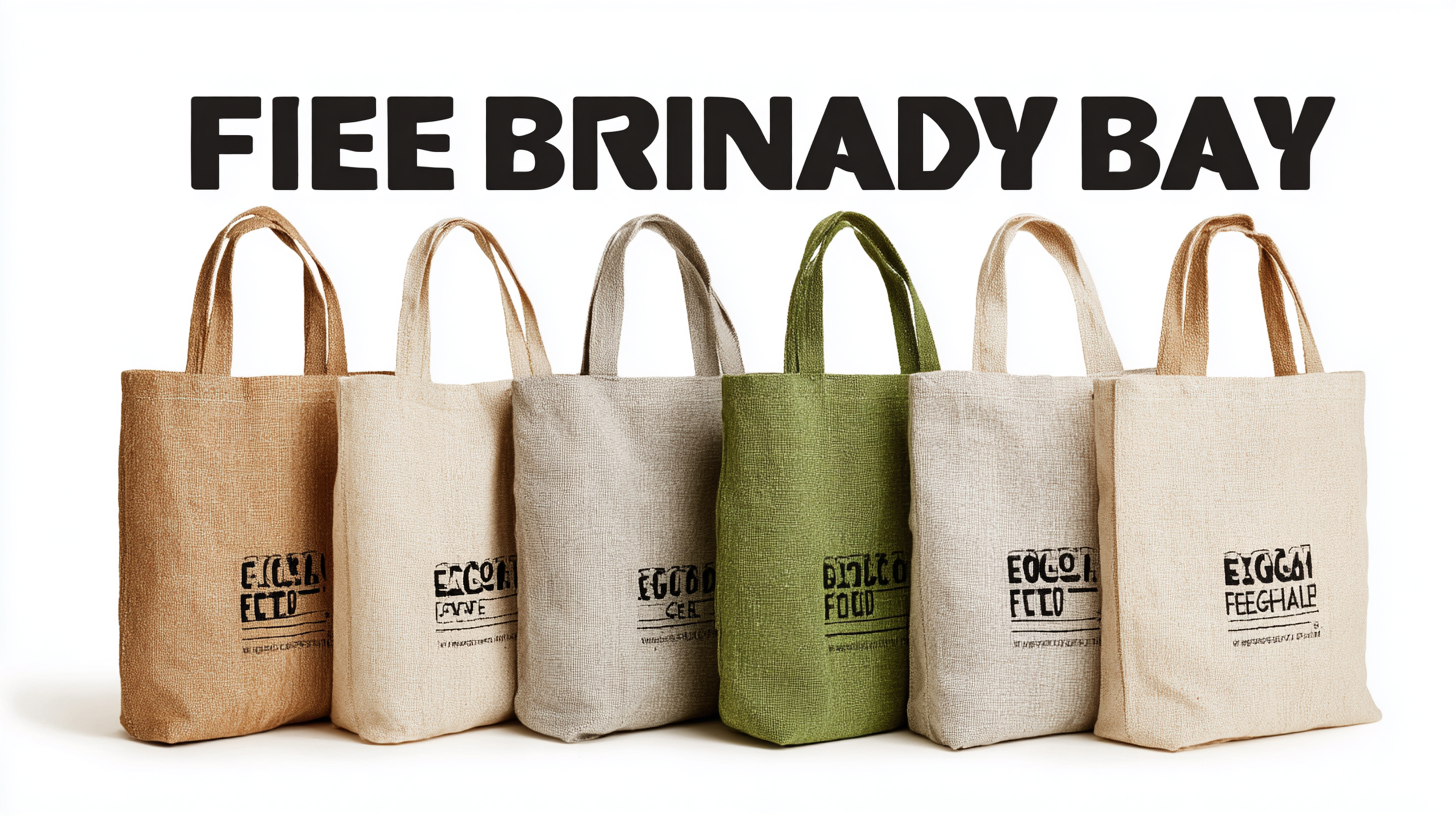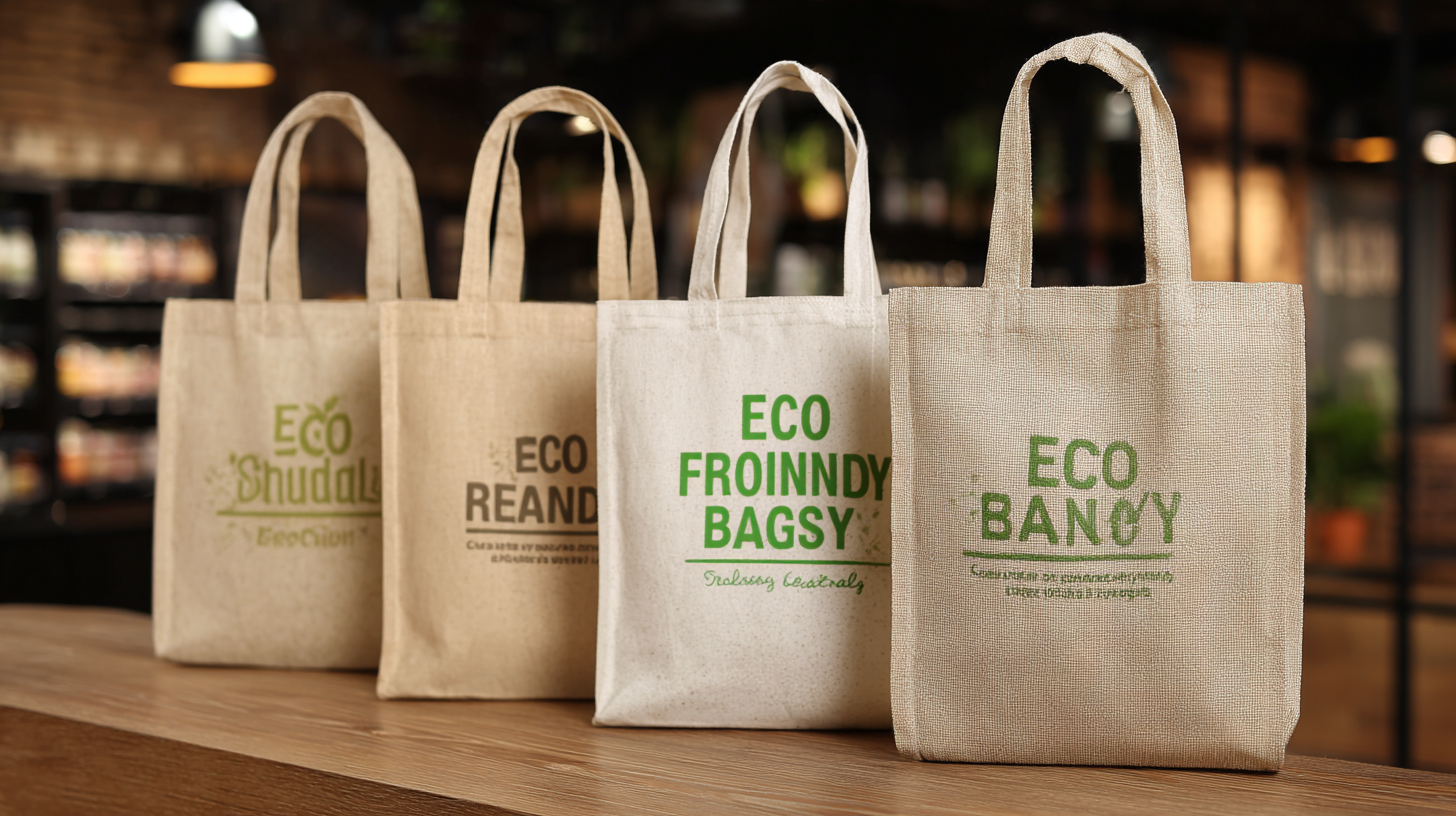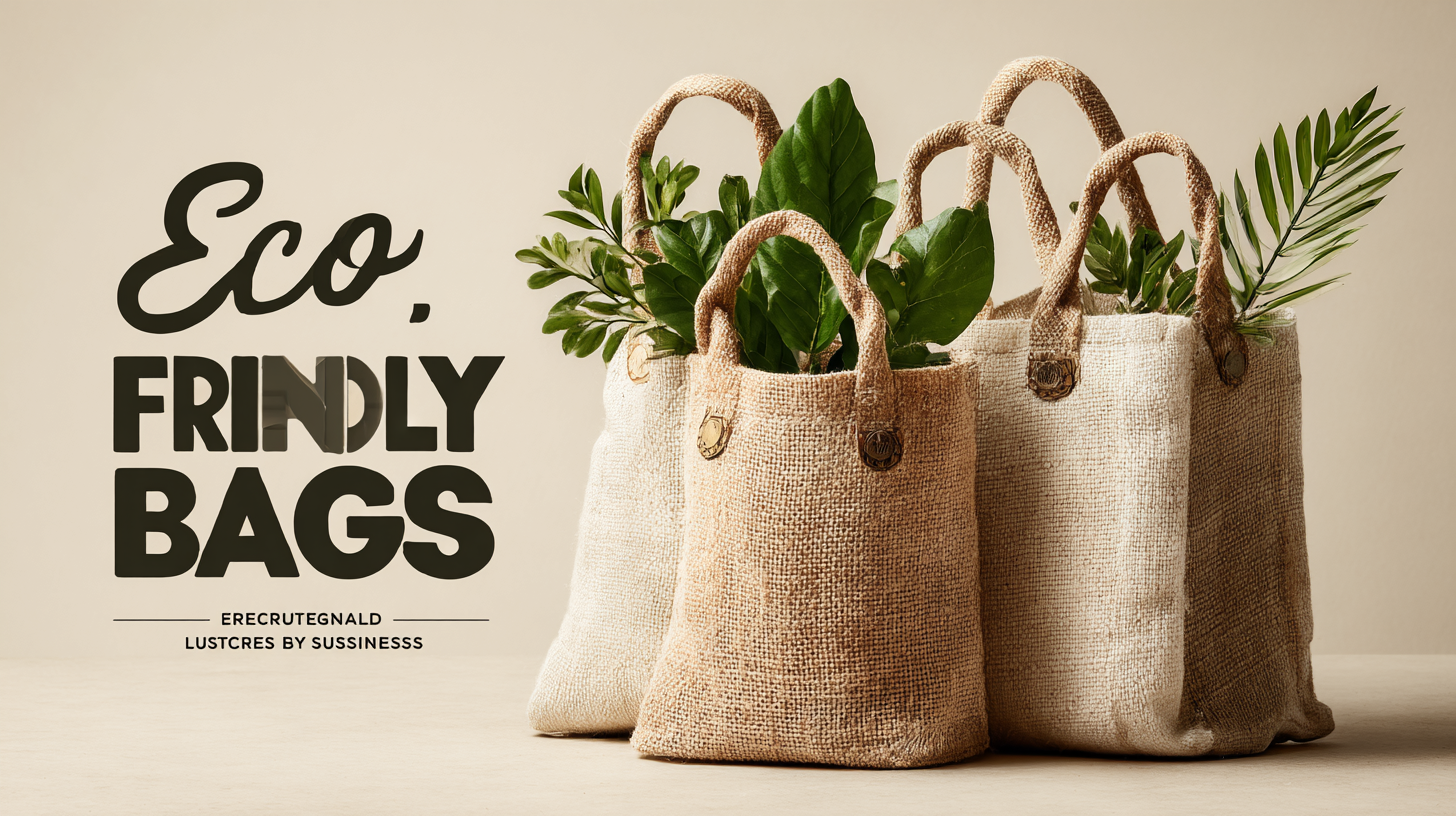In recent years, the retail industry has witnessed a significant shift towards sustainability, with consumers increasingly advocating for environmentally friendly practices. According to a 2021 report by Nielsen, 73% of global consumers are willing to change their consumption habits to reduce their environmental impact. This growing awareness presents an immense opportunity for businesses to thrive by adopting eco-conscious strategies, particularly through the use of Eco Friendly Bags. These bags not only reduce plastic waste but also enhance brand loyalty and appeal to the environmentally aware customer base. A study from GreenBiz indicates that 66% of consumers prefer shopping at stores that use sustainable packaging solutions. Thus, integrating Eco Friendly Bags into business operations is not merely an ethical choice but a strategic move that can lead to sustainable business success and align companies with the escalating demand for greener alternatives.

When selecting eco-friendly bags for your business, it is crucial to consider the characteristics of high-quality manufacturers. Responsible manufacturers prioritize sustainable materials, opting for organic cotton, recycled plastics, or biodegradable alternatives. By choosing materials that minimize environmental impact, these manufacturers not only create durable products but also contribute to a circular economy. This commitment to sustainability resonates with consumers, aligning with their growing preference for environmentally-friendly options.
Furthermore, high-quality eco-friendly bag manufacturers invest in ethical production practices. This includes ensuring fair labor conditions, minimizing energy consumption, and reducing waste throughout the manufacturing process. Transparency in sourcing and production processes is essential; businesses should seek out manufacturers willing to share their sustainability practices and certifications. By partnering with manufacturers who uphold these values, businesses can enhance their brand image and foster customer loyalty, proving that sustainability can go hand in hand with success.
This chart illustrates the key benefits of using eco-friendly bags, showcasing different sustainable practices and their impact on business success.
When evaluating the sustainability practices of bag producers, it is crucial to consider several key factors that influence their environmental impact. First and foremost, the materials used in bag production play a significant role in determining sustainability. Eco-friendly bag manufacturers often prioritize renewable resources, such as organic cotton or recycled plastics, reducing dependency on fossil fuels and minimizing waste. By opting for bags made from biodegradable or recyclable materials, these producers contribute to a circular economy that limits pollution and conserves natural resources.
Another critical aspect to assess is the production processes themselves. Sustainable bag producers typically implement energy-efficient practices, such as using solar energy or minimizing water usage during manufacturing. Ethical labor practices are also an essential component of sustainability; companies committed to fair wages and safe working conditions contribute not only to social responsibility but also to a more stable production environment. By carefully evaluating these practices, businesses can make informed decisions when selecting suppliers and ultimately enhance their own sustainability credentials through responsible choices in their supply chains.

When it comes to creating a sustainable business, the materials used in eco-friendly bag production play a crucial role. Many companies are transitioning from traditional plastic bags to more sustainable alternatives, such as organic cotton, jute, and recycled plastics. Organic cotton is not only biodegradable but also produced without harmful pesticides, making it a safe choice for both the environment and consumers. Jute, a strong natural fiber, has been hailed for its durability and minimal environmental impact. Its cultivation requires less water and pesticides, thus significantly reducing its carbon footprint.

Another noteworthy material is recycled plastic, which effectively diverts waste from landfills while conserving resources. This approach not only supports a circular economy but also meets consumer demands for eco-conscious products. By utilizing these materials, businesses can significantly diminish their ecological impact while appealing to the growing market of environmentally aware consumers. The shift toward eco-friendly bags reflects a broader commitment to sustainability that not only enhances brand reputation but also aids in achieving long-term business success.
In the pursuit of sustainable business practices, choosing eco-friendly bags is more than just a trend—it's a critical decision that can shape a company's overall impact on the environment. One essential aspect of this process is selecting manufacturers who are certified in environmentally responsible practices. Certification serves as a mark of credibility, ensuring that the manufacturer adheres to recognized standards for sustainability. These standards often encompass a range of criteria, from the materials used to production methods, thus giving businesses confidence that their eco-friendly bags truly meet ecological benchmarks.
Furthermore, the role of certification in the selection process goes beyond just compliance; it reflects a brand’s commitment to sustainability. By partnering with certified eco-friendly manufacturers, businesses can assure consumers that their purchases support environmentally responsible practices. This transparency builds trust and loyalty among customers who are increasingly looking for brands that align with their values. Ultimately, the right certifications can distinguish a brand in a crowded marketplace and contribute to long-term success, enhancing not only corporate responsibility but also brand reputation.
In today's eco-conscious marketplace, building partnerships with suppliers who prioritize sustainability can significantly enhance your business's credibility and appeal. Collaborating with eco-friendly suppliers not only ensures that your products meet environmental standards but also strengthens your brand's commitment to sustainability. It's crucial to conduct thorough research to identify suppliers who share your values and commitment to eco-friendly practices. Engaging in transparent communication about sustainability goals can foster a stronger partnership, ensuring both parties are aligned in their efforts.
Tips for establishing successful collaborations with eco-conscious suppliers include: firstly, thoroughly vetting potential suppliers for their sustainability certifications and practices. Look for suppliers who use renewable resources or have measurable goals for reducing waste. Secondly, consider visiting suppliers' facilities to see their operations firsthand. This not only builds trust but also allows for opportunities to innovate and improve sustainability practices together. Lastly, cultivate a long-term partnership by maintaining consistent communication and providing feedback, fostering a culture of collaboration and shared goals.
Working with eco-friendly suppliers can be a game changer for your brand. By integrating sustainable practices into your business model, you not only attract environmentally aware consumers but also contribute positively to the planet.
| Aspect | Benefit | Impact on Business |
|---|---|---|
| Sustainability | Reduces environmental footprint | Improved brand image and customer loyalty |
| Cost Savings | Lower long-term costs of materials | Increased profit margins |
| Regulatory Compliance | Aligns with environmental regulations | Avoids fines, enhances credibility |
| Market Differentiation | Attracts eco-conscious consumers | Increased market share |
| Partnership Opportunities | Collaboration with eco-friendly suppliers | Access to innovative products, shared values |